At U.N., U.S. Urges All Nations to End Venezuela’s ‘Nightmare’
Secretary of State Mike Pompeo says it's time to back opposition leader Juan Guaido amid deep divisions and fierce resistance from Russia.UNITED NATIONS—The United States urged all nations Saturday to end Venezuela’s “nightmare” and support opposition leader Juan Guaido while Russia accused the Trump administration of attempting “to engineer a coup d’etat” against President Nicolas Maduro — a reflection of the world’s deep divisions over the crisis in the South American country.
U.S. Secretary of State Mike Pompeo told the U.N. Security Council at a meeting called by Washington that it’s beyond time to back the Venezuelan people as they try to free themselves from what he called Maduro’s “illegitimate mafia state” and support Guaido. The young opposition leader has declared himself the country’s interim president, arguing that Maduro’s re-election was fraudulent.
But Russia’s U.N. Ambassador Vassily Nebenzia said Venezuela doesn’t threaten international peace and security and accused “extremist opponents” of Maduro’s legitimate government of choosing “maximum confrontation,” including the artificial creation of a parallel government. He urged Pompeo to say whether the U.S. will use military force.
Pompeo later told reporters who asked for a response, “I am not going to speculate or hypothesize on what the U.S. will do next.”
What has played out in Venezuela and the world’s media between supporters and opponents of the Maduro government played out face-to-face in the chamber of the U.N.’s most powerful body, which has failed to take action on the Venezuelan crisis because of deep divisions. The Security Council’s five veto-wielding permanent members could not unite behind a statement on Venezuela, presenting widely differing texts.
The leaders of two of those council nations — France and Britain — joined Spain and Germany to turn up the pressure on Maduro Saturday, saying they would follow the U.S. and others in recognizing Guaido unless Venezuela calls new presidential elections within eight days.
European Union foreign policy chief Federica Mogherini said if there is no announcement of new elections in the next days the 28-nation bloc “will take further actions, including on the issue of recognition of the country’s leadership.”
Venezuela’s Foreign Minister Jorge Arreaza dismissed the deadline.
“Europe is giving us eight days?” he asked the council. “Where do you get that you have the power to establish a deadline or an ultimatum to a sovereign people. It’s almost childlike.”
Arreaza said Venezuela “will not allow anyone to impose on us any decision or order” and demanded that someone show him where in the country’s constitution it states that an individual can proclaim himself president.
As for possible military action to oust Maduro, Arreaza said, “we will not allow any government or any country to violate our sovereignty, and to give a pretext for Donald Trump to start a war.”
The opposition to Guaido was also reflected in the initial procedural vote on whether the 15-member Security Council should even discuss the crisis in Venezuela, which is not on its official agenda.
The United States barely survived the vote to go ahead with the meeting, receiving the minimum nine “yes” votes from the council’s six Western nations along with Kuwait, Peru and the Dominican Republic. China, South Africa and Equatorial Guinea joined Russia in voting “no” while Indonesia and Ivory Coast abstained.
Pompeo went after Russia and China, accusing them of trying “to prop up Maduro while he is in dire straits … in the hopes of recovering billions of dollars in ill-considered investments and assistance made over the years.”
But he saved his sharpest attack for Cuba, saying no country has done more to sustain “the nightmarish condition of the Venezuelan people.” He said Cuba has sent “security and intelligence thugs” to sustain Maduro’s “illegitimate rule.”
“Now is the time for every other national to pick a side,” Pompeo said. “No more delays, no more games. Either you stand with the forces of freedom, or you’re in league with Maduro and his mayhem.”
China’s U.N. Ambassador Ma Zhaoxu said his government “firmly opposed” the U.S. accusations and doesn’t interfere in the internal affairs of other countries.
“We hope the country that accuses others can do likewise itself,” Ma told the council.
Russia’s Nebenzia also rejected Pompeo’s claims.
Cuba’s U.N. Ambassador Anayansi Rodriguez went further, rejecting “the deliberate” and “fake news” cast on the country not only by Pompeo but by Elliot Abrams, the new chief of U.S. policy on Venezuela who sat in the council after the secretary of state left.
Abrams called Venezuela “a satellite of Cuba and Russia” — which the three countries vehemently denied — and said Saturday’s meeting “is not about foreign intervention in Venezuela” but “about the right of Venezuelans to direct their own internal affairs and choose the future of their own country democratically.”
The Security Council meeting came a day after Guaido vowed to remain on the streets until his country has a transitional government, while Maduro dug in and accused his opponents of orchestrating a coup.
In rival press conferences, Guaido urged his followers to stage another mass protest next week, while Maduro pushed his call for dialogue.
The standoff could set the scene for more violence and has plunged troubled Venezuela into a new chapter of political turmoil that rights groups say has already left more than two dozen dead as thousands take to the street demanding Maduro step down.
Guaido took a symbolic oath of office Wednesday proclaiming himself the nation’s constitutional leader on grounds that Maduro’s re-election last year was fraudulent — an allegation supported by the U.S., the European Union and many other nations.
The Trump administration announced it was recognizing the 35-year-old leader of the opposition-controlled National Assembly quickly after his oath, leading Maduro to say that he was breaking all diplomatic ties with the United States and expelling U.S. diplomats. Guaido told the Americans to stay.
Pompeo told the Security Council: “Let me be 100 percent clear — President Trump and I fully expect that our diplomats will continue to receive protections provided under the Vienna Convention. Do not test the United States on our resolve to protect our people.”
On Saturday, Venezuela’s government backtracked on an earlier 72-hour deadline for U.S. Embassy personnel to leave the country.
Venezuela’s Foreign Affairs Ministry said it is negotiating the establishment of a U.S. Interests Office and will allow U.S. Embassy personnel to remain in the country while talks take place. It said that talks about an interest section will have a 30-day limit and if no agreement is reached embassy personnel will then have to leave. The Trump administration had refused to obey the directive and Saturday’s decision puts off a potential conflict between both countries.
Recognition of Guaido by the U.S., Venezuela’s biggest trade partner, threatens to heap more misery on the country’s crisis-stricken economy, and a similar move by European nations would complicate matters further.
Directives sent Friday by the State Department to the Federal Reserve will make it harder for Maduro to gain access to the government’s sizable overseas assets, including revenue from oil sales and profits by Houston-based Citgo, a unit of the state-owned oil giant PDVSA.
Guaido’s move is the most direct challenge to Maduro’s rule despite years of protests at home and international efforts to isolate the regime amid a growing humanitarian crisis fueled by falling oil prices and government mismanagement.
Maduro is accusing the opposition of working with the U.S. to overthrow him. Though over a dozen nations are recognizing Guaido as president, Maduro still has the support of the military and powerful, longtime allies like Russia and China. He said he is still willing to talk with the opposition.
Both sides attempted dialogue last year, but it fell apart as Maduro pushed forward with an early election that Venezuela’s most popular opposition leaders were barred from running in. Many in the international community condemned that vote and now consider the National Assembly, which Maduro has stripped of its power, the only legitimate institution.
Russia’s Nebenzia, who opposed Saturday’s meeting, said it was useful because it showed Washington that a majority of countries favor Venezuela’s sovereignty, territorial independence, and non-interference in its internal affairs.
“Let’s not escalate tensions around Venezuela,” he said at the end of the council meeting.
___
Smith reported from Caracas, Venezuela.
Your support is crucial...As we navigate an uncertain 2025, with a new administration questioning press freedoms, the risks are clear: our ability to report freely is under threat.
Your tax-deductible donation enables us to dig deeper, delivering fearless investigative reporting and analysis that exposes the reality beneath the headlines — without compromise.
Now is the time to take action. Stand with our courageous journalists. Donate today to protect a free press, uphold democracy and uncover the stories that need to be told.
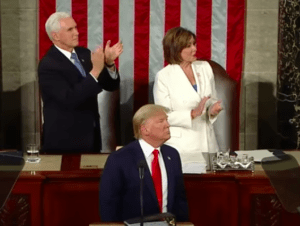
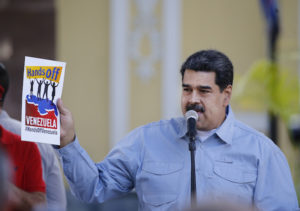
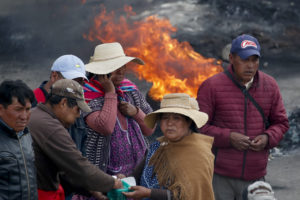
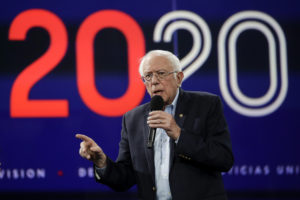
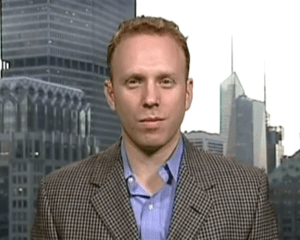
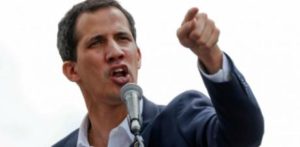
You need to be a supporter to comment.
There are currently no responses to this article.
Be the first to respond.